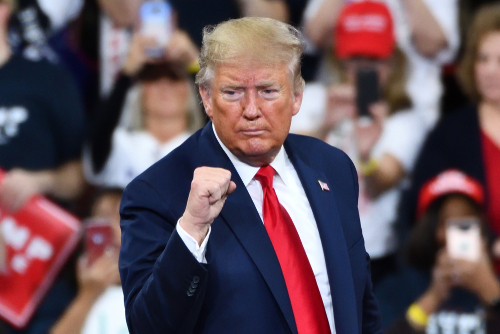
U.S.-China CLASH – AmCham Sparks Tensions!
Voices of concern over U.S.-China economic imbalances echoed at AmCham Shanghai’s 110th anniversary, calling for transparency amidst growing trade tensions.
At a Glance
- U.S. and Chinese officials exchanged criticisms at a U.S. business chamber event in Shanghai.
- Scott Walker criticized the U.S.-China economic relationship as unbalanced.
- Chen Jing countered that these concerns are not aligned with recent communications.
- AmCham Shanghai called for economic transparency to assist businesses in decision-making.
110th Anniversary Highlights Economic Tensions
The American Chamber of Commerce (AmCham) in Shanghai marked its 110th anniversary at a pivotal moment for U.S.-China relations. U.S. Consul General Scott Walker used the platform to address perceived inequities in the economic ties between the two nations. Concerns underscored the need for fairness and a halt to discriminatory practices faced by American firms in China. Such issues have long been a point of contention, causing significant friction in an already delicate relationship.
In response, Chen Jing of the Shanghai Communist Party dismissed Walker’s claims as prejudiced. He emphasized recent diplomatic interactions, including a high-level phone call between U.S. President Donald Trump and Chinese leader Xi Jinping, as evidence of constructive engagement. This dialogue, including a tentative 90-day deal to reduce tariffs, suggests ongoing efforts to address broader trade issues impacting both parties.
Calls for Economic Transparency and Stability
The exchange at the AmCham event highlights the ongoing tensions within U.S.-China economic relations. The backdrop includes a simmering trade war and recent disagreements over critical resources like rare earth minerals, crucial for various industries. The sense of uncertainty is palpable, causing businesses to hesitate in decision-making, according to Eric Zheng, President of AmCham Shanghai. Companies are calling for clear and stable policies to guide their future actions in this complicated landscape.
“People are looking for some more definitive, durable statements on both sides that enable businesses to feel more secure.” – Eric Zheng.
The impact on businesses is significant, leading to calls for transparency from both governments. As noted by Eric Zheng, providing certainty is crucial in allowing companies to navigate the challenging global market effectively. These developments underscore the importance of diplomatic efforts and the need for a more balanced approach in economic relations.
Looking Ahead: The Road to Resolution
The recent discussions between President Trump and President Xi signal potential progress in resolving trade disputes. However, the path forward remains fraught with challenges. The exchange underscores the urgency for a stable economic environment. AmCham Shanghai’s 110th anniversary has thus become a catalyst for deeper introspection and dialogue aimed at achieving a more balanced and fair economic partnership between the U.S. and China.
“We want an end to discriminatory actions and retaliation against U.S. companies in China.” – Scott Walker.
Ensuring long-term economic stability will require strategic commitments from both sides, as ongoing tensions continue to impact global markets. With the international economy at stake, transparency and mutual understanding remain the best pathways to achieving harmonious trade relations between these global powers.




